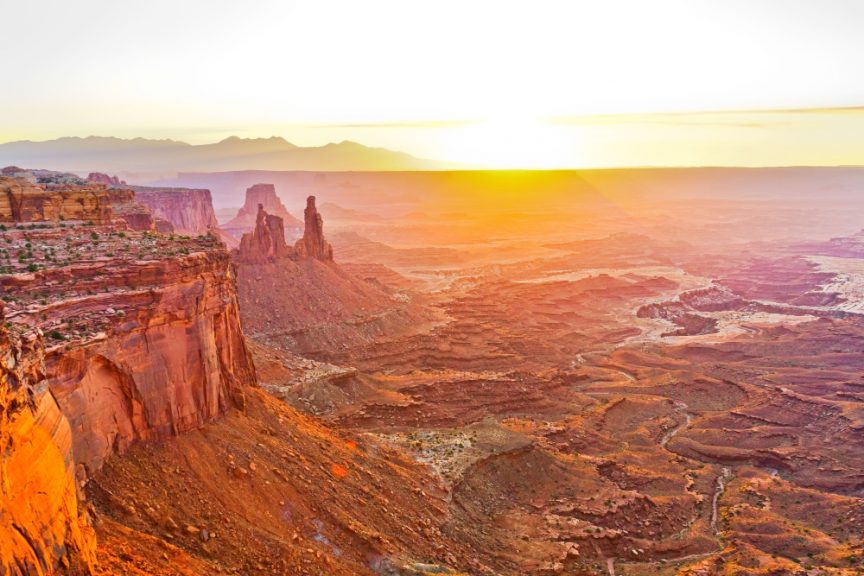With two national parks and two national monuments opening their unpaved roads to e-bikes, park officials should consider how they can cost-effectively maintain popular infrastructure.
At the end of August, the National Park Service announced that electric bicycles (e-bikes) will be allowed in National Parks and National Monuments in Southeastern Utah. The new policy, which went into effect on October 1, specifically applies to Arches and Canyonlands National Parks, and Hovenweep and Natural Bridges National Monuments.
In the words of the National Park Service, allowing e-bikes onto the paved and unpaved roads currently accessible to regular bikes “expand[s] recreational opportunity and accessibility.” However, with 1.5 million guests visiting Arches and nearly 800,000 visiting Canyonlands every year, key decision-makers will need to consider how they can keep up the integrity of their unpaved roads. The same goes for Hovenweep and Natural Bridges, which are both popular recreational destinations for residents and visitors alike.
Accordingly, it’s incumbent upon the National Park Service to take a look at what impact e-bikes will have on unpaved roads, if they haven’t done so already. As the decision is sure to bring more visitors to experience these national treasures, park officials must maintain their unpaved surfaces for future use through the implementation of sophisticated road stabilization technologies.
What the Decision Allows
The National Park Service’s new policy for Arches, Canyonlands, Hovenweep, and Natural Bridges allows e-bikes to be used in areas already designated for regular bikes. Now in effect, the rule permits e-bikes on paved and unpaved roads that are open to the public. This policy applies to both private and commercial use.
However, there are restrictions in place. For example, e-bikes are forbidden on trails in any of the parks or monuments — just as regular bikes are. It’s also important to note that there are no charging stations in any of the affected areas and that electric generators are not permitted in the backcountry.
Considerations for Unpaved Roads
Maintaining unpaved roads — especially in the face of heavy use — can be particularly challenging for a whole host of reasons, including weather, climate, and soil type. The difficulties associated with proper maintenance are made even more unwieldy, given the tight budgets that many public recreational areas, like national parks and monuments, have to deal with as such areas become more and more popular.
This means that the National Park Service must find a way to simultaneously improve outcomes while saving money in the process. The answer? Innovative road stabilization products and application strategies, which help maintain unpaved roads that don’t require expensive materials, like lime and cement, and cut overall maintenance costs without cutting corners.
Protecting Backcountry Infrastructure
For National Park Service stakeholders, soil stabilization and road building technologies designed and patented by Midwest Industrial Supply, Inc. represent the only solution to their biggest unpaved road challenges. Our suite of cutting-edge products use environmentally safe, non-toxic binders to support the structural integrity of unpaved roads without requiring outside materials. In fact, Midwest’s soil stabilization and road-building products use the soils already in place to create pavement-like strength.
What’s more, Midwest’s products can be applied to unpaved roads of virtually any soil composition. Our team takes the unique properties of a given area into account, weighs the necessary performance requirements, and designs a solution that fits your budget. To protect the unpaved roads of our national parks and monuments for future generations, Midwest stands ready to help.


